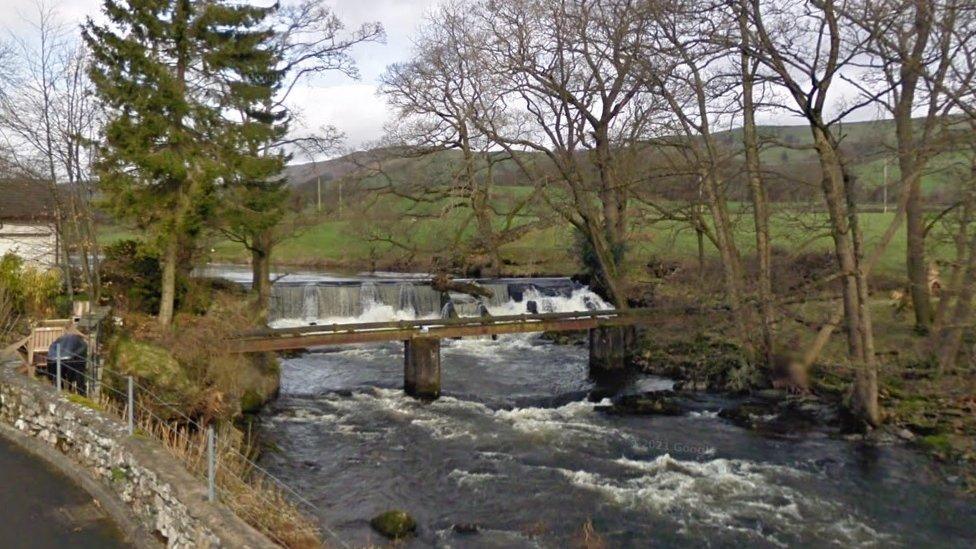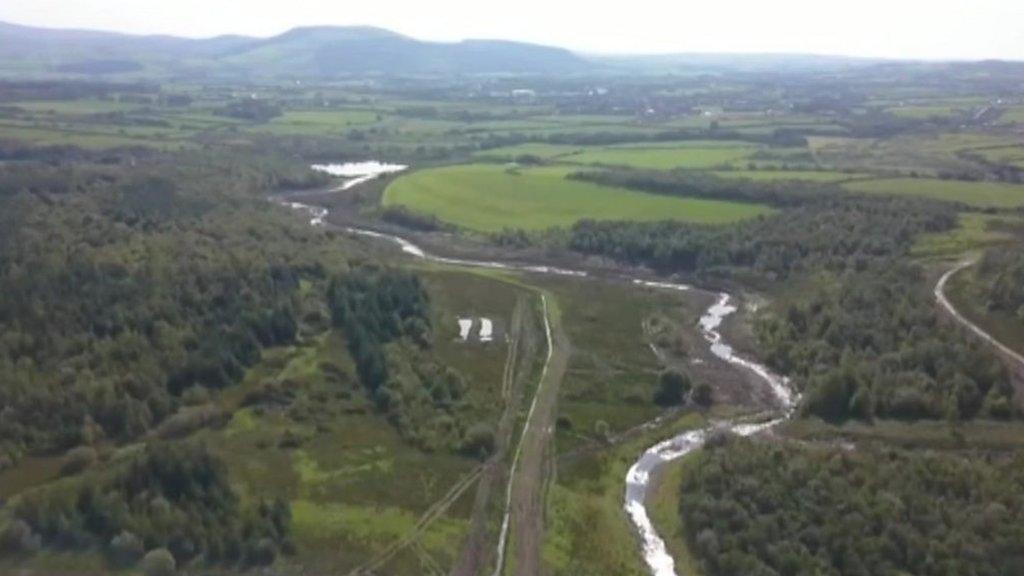Decision made to remove 19th Century Kendal weir
- Published

The 19th Century weir near Kendal is to be removed and a rock ramp installed
A 19th Century barrier is set to be removed after plans were passed to re-naturalise a section of the River Kent.
Bowston Weir, near Kendal, will have a dam and two fish passes taken out under plans by South Cumbria Rivers Trust.
The move has been criticised by some, with one objector comparing the sound made by the water flowing over the dam to "Beethoven in the wild".
A series of rocks often held down with pins, known as a rock ramp, will replace it as the plans were approved.
The rock ramp would control sediment which has built up behind the weir over time, the Local Democracy Reporting Service said.
Michael Rogers, head of conversation at Eden Rivers Trust, spoke in support of the application.
He said: "By removing artificial barriers and restoring the river to a more natural state, species can be more easily access food sources and refuge."
'Serious concerns'
Gareth Pedley, a conservation officer for the north at the Wild Trout Trust said: "Most weirs were created at a time when the major ecological harm they caused was not understood."
Mike Hayward, of Lakeland Canoe Club, told councillors the club was "broadly enthusiastic" about the removal of the weir but had "serious concerns" about the downstream rock ramp.
He said a key concern was the boulders that would be used in the ramp as they risked "pinning" canoeists against them.
"We are objecting to the design of the rock ramp, not necessarily to the whole project," he added.
The application for the weir's removal was approved with the condition that a "scheme for the on-site interpretation of Bowston Weir's significance as a heritage asset has been submitted to, and approved in writing by, the local planning authority".

Follow BBC North East & Cumbria on Twitter, external, Facebook, external and Instagram, external. Send your story ideas to northeastandcumbria@bbc.co.uk, external.
- Published16 September 2020
